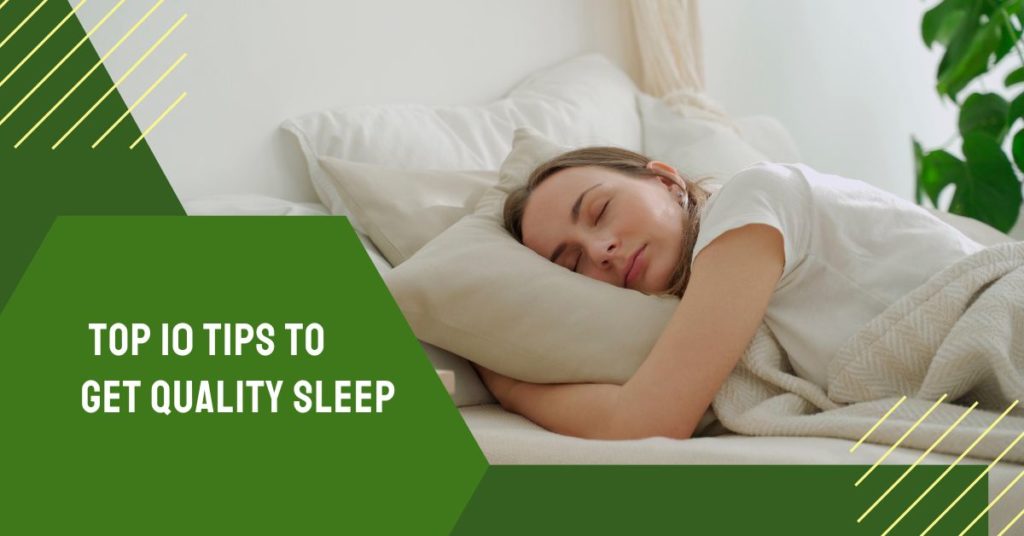What is Quality Sleep?
Quality sleep means sleeping without interruptions for a long enough time to feel rested, refreshed, and ready to go when you wake up.
It means that you have gone through all the necessary stages of sleep, including deep sleep and REM sleep, and that your body and mind have had the chance to rest and heal during the night. Quality sleep is essential for your physical and mental health and your ability to think and feel good during the day.
Why Is Quality Sleep Important to Mental Health?
Quality sleep is vital to mental health[i] because it dramatically impacts our mood, emotions, and thinking ability.
We are more likely to experience negative emotions such as anxiety and depression when we don’t get enough good quality sleep. We may also experience difficulty concentrating and making decisions during the day, as well as experience changes in our behavior and social interactions.
Lack of sleep can also make it harder to control our emotions, leading to anger and mood swings. On the other hand, getting enough good sleep can help us feel better, deal with stress better, and improve our mental health and well-being.
What’s the Recommended Amount of Sleep for Adults?
The National Sleep Foundation states that adults should aim for 7-9 hours of sleep per night.[ii] However, this number can change based on age, lifestyle, and individual needs.
Some people may need more or less sleep than this, so pay attention to your body and adjust your sleep schedule accordingly. Factors like physical activity level, stress, and underlying medical conditions can also impact how much sleep you need.
Top 10 Tips to Experience Quality Sleep
Now that you know how important quality sleep is, how do you achieve it? Here are our 10 best suggestions.
- Establish a consistent sleep schedule. Try to go to bed and wake up at the same time every day, even on weekends.
- Make a sleep-conducive bedtime routine. Doing something relaxing before bed can signal your brain that it’s time to unwind and sleep. This could include reading a book, taking a warm bath, meditating, or practicing other relaxation techniques.
- Make your bedroom favorable to sleep in. Ensure your bedroom is cool, quiet, and dark, and your bed and pillows are comfortable.
- Avoid stimulants. Avoid caffeine, nicotine, and alcohol before bedtime because they can keep you from sleeping.
- Avoid electronics before bed. Stay away from screens and bright lights for at least an hour before bed, as they can mess with your sleep patterns.
- Get regular exercise. Regular exercise can help you sleep better, but you shouldn’t do it too close to bedtime.
- Manage stress. Try to deal with stress during the day so you don’t take it to bed. This could include being mindful, taking deep breaths, or writing in a journal.
- Avoid napping. Some people benefit from a short nap, but it’s best to avoid them. This is especially true in the late afternoon or evening when napping can make it difficult to fall asleep at night.
- Get up if you can’t sleep. If you haven’t fallen asleep in 20 minutes, get out of bed and do something that will help make you feel sleepy. For example, you can read a boring novel, meditate, do some muscle relaxation exercises, etc.). Above all, DO NOT use electronics.
- Consult a healthcare professional. Suppose you still have trouble sleeping after making these changes. In that case, talking to a doctor or nurse might be a good idea to rule out any underlying medical conditions or sleep disorders.
[i] Scott, A. J., Webb, T. L., Martyn-St James, M., Rowse, G., & Weich, S. (2021). Improving sleep quality leads to better mental health: A meta-analysis of randomised controlled trials. Sleep Medicine Reviews, 60, 101556. https://doi.org/10.1016/j.smrv.2021.101556
[ii] Hirshkowitz, M., Whiton, K., Albert, S. M., Alessi, C., Bruni, O., DonCarlos, L., Hazen, N., Herman, J., Adams Hillard, P. J., Katz, E. S., Kheirandish-Gozal, L., Neubauer, D. N., O’Donnell, A. E., Ohayon, M., Peever, J., Rawding, R., Sachdeva, R. C., Setters, B., Vitiello, M. V., & Ware, J. C. (2015). National Sleep Foundation’s updated sleep duration recommendations: final report. Sleep health, 1(4), 233–243. https://doi.org/10.1016/j.sleh.2015.10.004

